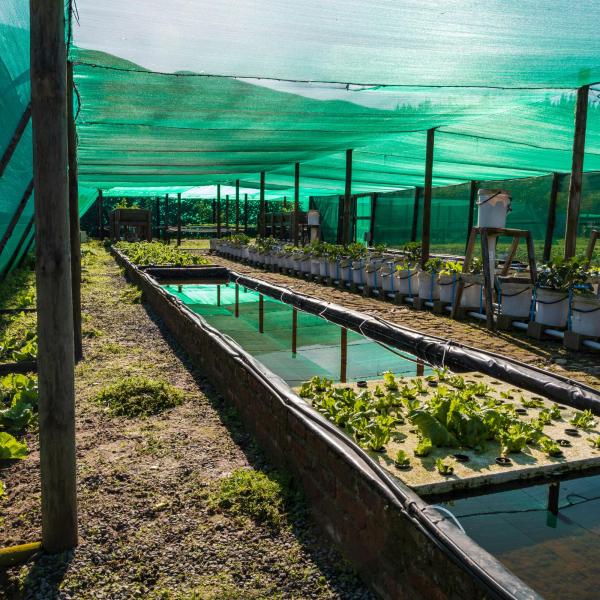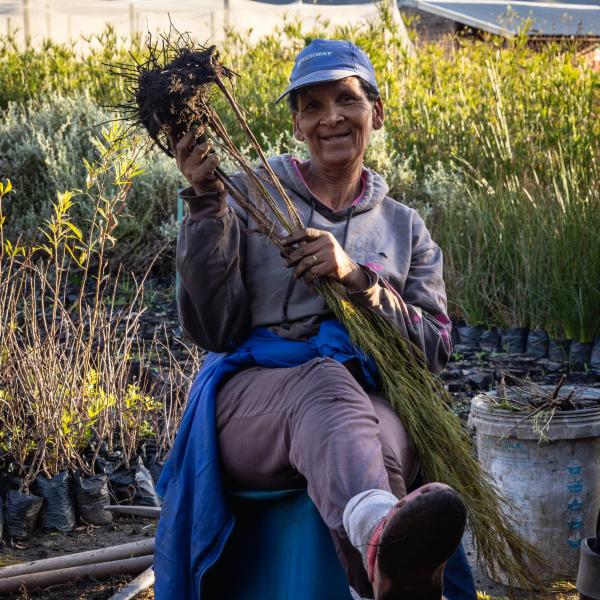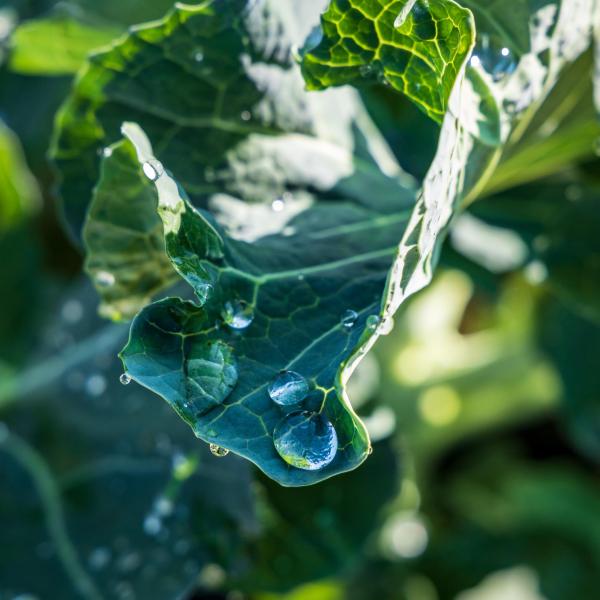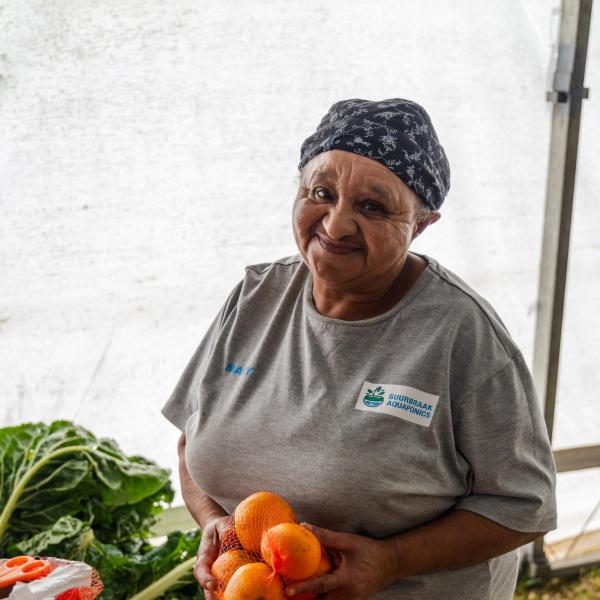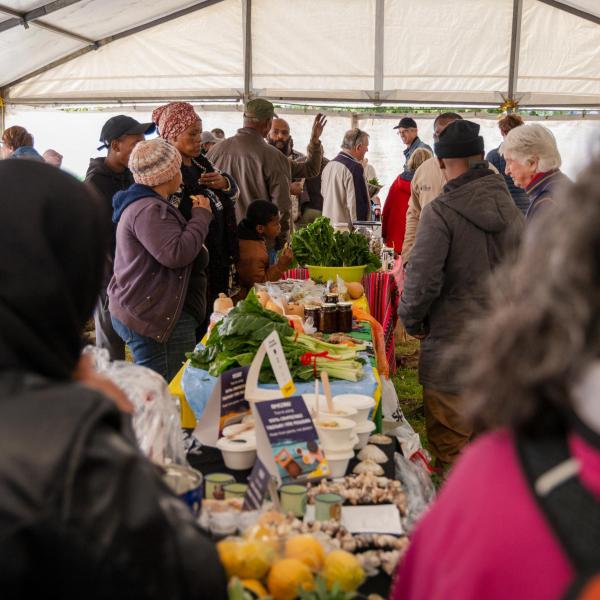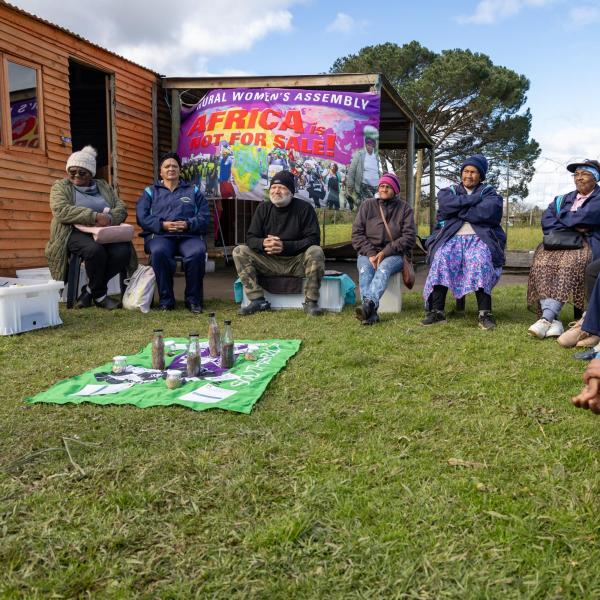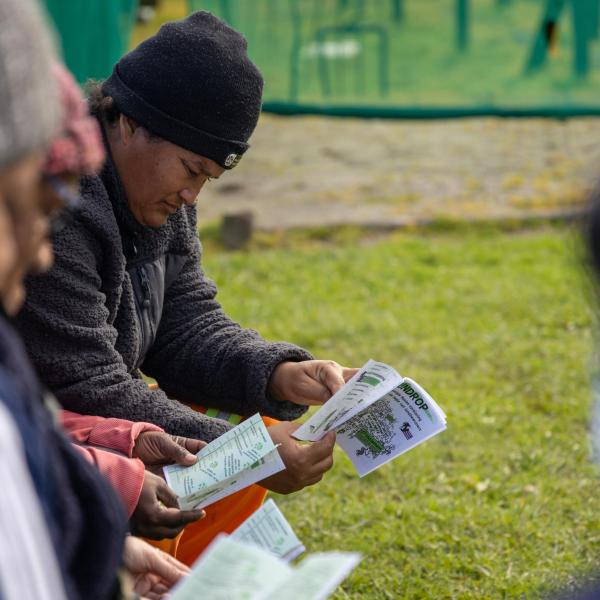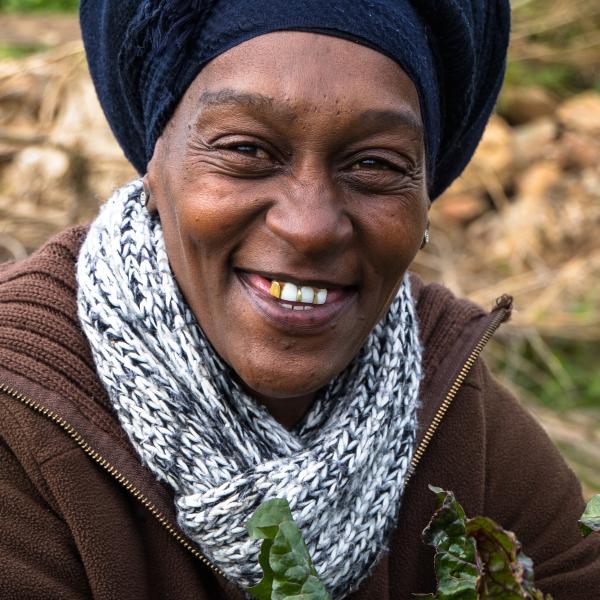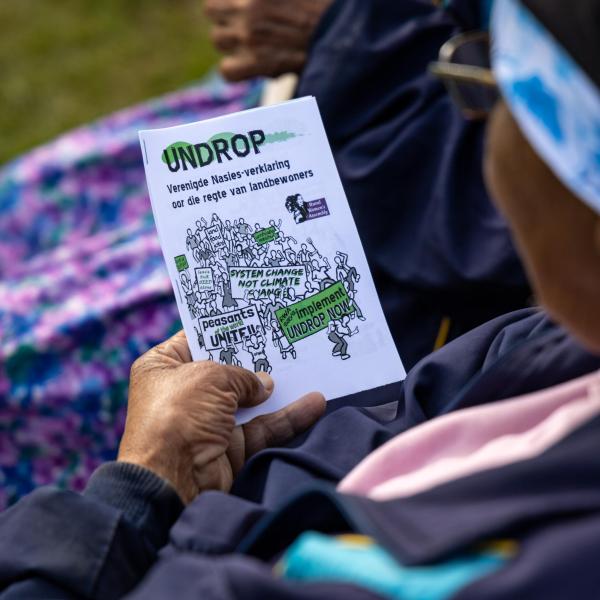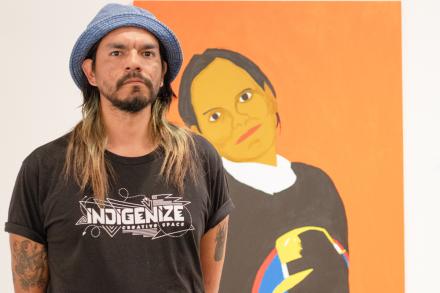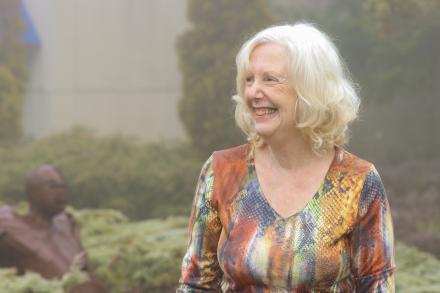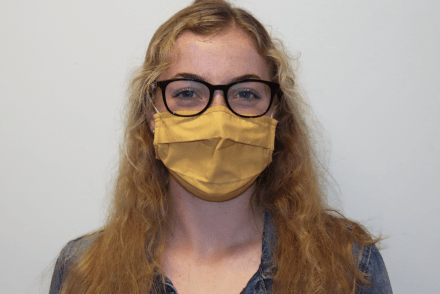Global Studies student showcased her work through exhibit
For three months in 2023, Kashmir Lesnick-Petrovicz documented the work of a non-profit in South Africa. Trust for Community Outreach and Education (TCOE) works with rural farmers and the rural poor and focuses on food sovereignty, rural democratization and movement building.
Kashmir’s internship was part of her Global Studies program and she received a Queen Elizabeth Scholarship to fund her internship. The scholarship program funds three-month international field internships and aims to develop the next generation of innovative leaders and community builders.
The communications position combined her two fields of study in Visual Arts and Global Studies. During her internship, she created the non-profit’s annual report, documented work through photography and videography at agroecology hubs, and interviewed activists, movement organizers and farmers. She also connected with women from a land-back movement. These women work on small pieces of land that they either own or have taken over.
Kashmir interviewed one 25-year-old woman in the township of Zolani who had taken over a piece of land for farming. She tried to contact the government to gain ownership but never heard back from them. One of the issues the non-profit struggles with is a lack of youth interested in agriculture because there are so many other options out there. The woman in Zolani is showing them they can make a living through farming.
“She’s been an incredible inspiration for the youth in her township, giving them work on her farm,” says Kashmir. “They started with agriculture but now they’ve expanded and have livestock too. The youth see her building a sustainable livelihood for herself and her family through farming and selling produce and realize they can achieve the same.”
Kashmir says the most impactful part of her internship was working alongside the rural farmers and activists.
“They’re so passionate and so driven. It’s partially because they must be. A lot of them are born activists because they must fight for their rights every day to have resources and land to make a living,” she says.
Kashmir says she decided to apply for the internship because she’s always dreamed of working abroad for an NGO. After hearing other students share their stories about global internships, she was set on applying.
“I was inspired by some of the people I’ve met who went on internships before. They had these incredible experiences – life-changing. I wanted that too. But more than anything, I wanted to experience a different part of the world, meet people with new perspectives, and like most Global Studies students, come to better understand the ways I can make a small difference in the world,” she says.
As part of her internship Kashmir created a final project, an exhibit at VIU’s View Gallery that followed her journey through a series of photographs, videography and writing about her experience. The exhibit ran at the gallery from February 28 to March 15.
Below, Kashmir shares four short articles and photographs that were part of her exhibit.

Food sovereignty: Agroecology hub Suurbrak (Western Cape)
My first field visit working for the Trust for Community Outreach and Education was to two agroecology hubs located a few hours outside of Cape Town. The drive was incredibly beautiful, defined by rolling hills that went on forever in colours of vibrant greens and yellows, with sheep or cattle speckled throughout and a stunning mountain range as the backdrop.
The first stop was in Suurbrak, and I quickly got lost in taking photos of the small but mighty agroecology hub.
This one-hectare farm is run by five women. The hub has an on-site aquaponics centre, which is a food production system where nutrient-rich water is fed to hydroponically grown plants.
Depending on the season, vegetables such as cabbage, sweet potatoes, broccoli, lettuce, spinach, beetroot, butternut and cauliflower are grown. Seedlings are distributed to nearby home gardens, at Mawubuye Land Rights Forum meetings and to surrounding hubs such as the Genadendal hub.

Food sovereignty: Mowbray Market
As part of the food sovereignty stream, the Trust for Community Outreach and Education developed the Mowbray Market a few years ago, located 15 minutes outside of the business district in downtown Cape Town. The market is hosted in collaboration with the Rural Women’s Assembly, Mawubuye Land Rights Forum and the Inyanda National Land Rights Movement.
It runs monthly, with agroecology small-scale farmers, local food producers and artisans showcasing their produce and products. At no cost to the farmers, the market provides a direct opportunity for stable revenue. Seedlings are often shared and distributed amongst TCOE members.
Although I attended only one market during my internship, the sense of camaraderie between vendors was clear. The Mowbray Market had an intimate atmosphere and a solidified community that I cherished being a part of.

Outskirts of Cala (Eastern Cape)
The towns in rural Eastern Cape – framed by flat mountain tops and scattered livestock, and in colours of red, yellow, blue and orange – spread out amongst the rolling hillsides almost endlessly. At night, with not a soul on the road except me and my comrades, the Milky Way appeared with a kind of clarity I had never seen before.
I experienced what rural South African communities are like, off the beaten track of the tourist towns because of my work through the TCOE. Eastern Cape is different from Western Cape; it feels far vaster and flatter, with rural towns and informal settlements scattered across the land in pockets. Eastern Cape is mainly home to the Xhosa people. They were some of the friendliest people I’ve ever met, always greeting me with a warm smile.
Although the days were tiring, my time in the Eastern Cape was one of the most meaningful parts of my entire trip. More than anything, the welcoming Xhosa people left the most significant imprint, as did the incredible presence of the rural Eastern Cape.

Movement building: RWA and UNDROP
In my second last week working with the TCOE, my final field visit had me visiting Robertson, Suurbraak, and a township called Zolani. The purpose was to interview five different members of the Rural Women’s Assembly (RWA) about the United Nations Declaration on the Rights of Peasants (UNDROP). I also documented a RWA workshop and captured video and image content related to the farmland I was visiting.
TCOE works with the Rural Women’s Assembly as it relates to their movement-building stream. Movement building is another integral focus of TCOE, helping to build and support movements of small-scale farmers, fishers and landless people. These movement-building processes challenge systemic dispossession and the disconnection of communities from the natural resources in the country. RWA builds the voice and visibility of marginalized rural women and their struggles while advocating for new ways to support sustainable food sovereignty and rural livelihoods.
My time in the field has gifted me with a new appreciation of the immense value of land and its inherent relationship to those working it. The idea of land has come to mean so much more to me than a material matter. Rather, it represents financial opportunity, employment, skills building, food sovereignty, security, tradition and so much more.
More than anything, land provides the right to build a sustainable livelihood. But it’s not just the land alone. It’s the people, and their passion and promise to engage with the land sustainably and equitably.
I’m grateful to have had the opportunity to document these independent and strong women of RWA in action.
Kashmir extends her gratitude to Matthew Bowes, Geography and Global Studies Professor and her internship supervisor, for all the support and mentorship throughout her internship, as well as to the team at Education Abroad.
She also extends her gratitude to Chai Duncan, View Gallery Curator, and Mitch Miyagawa, who previously held the position of Global Engagement Coordinator, VIU International, for the opportunity to exhibit her work during the Global Citizens Forum.
She was honoured to do her artist talk alongside presenter Karno Batiran, who heads PAYOPAYO, a Development and Peace – Caritas Canada partner organization based in South Sulawesi, Indonesia.
Related Posts
Got an article idea for the blog? Email students@viu.ca.

